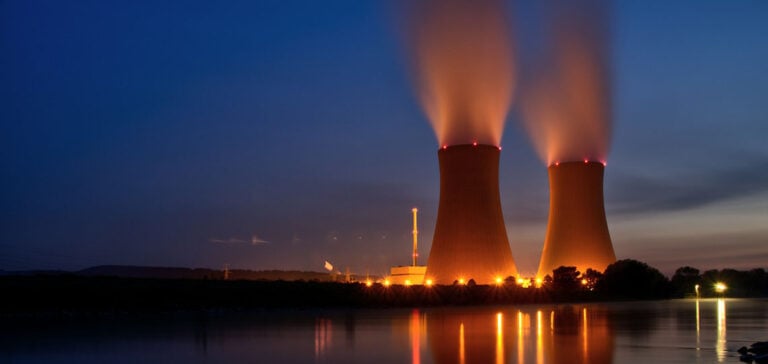The recent announcement of the launch of equipment manufacturer Alfeor, the fruit of collaboration between Arnaud Montebourg’s “Made in France” teams and investment fund Otium Capital, marks a crucial step in the French nuclear sector. The new company has set itself an ambitious goal: to become a leading equipment supplier to the nuclear industry, becoming a major supplier to the key players in this strategic sector.
An Ambitious Vision for Nuclear Energy
In an official press release, Alfeor set out its vision. It expresses its desire to contribute to the deployment of nuclear energy as a low-carbon, controllable and sovereign source of energy. What’s more, Alfeor aims to play a key role in the reindustrialization of France. To achieve these ambitious goals, Alfeor has drawn up a clear corporate strategy: buy out, invest in and develop the small and medium-sized enterprises (SMEs) that supply the nuclear industry.
A Strategic Plan focused on Technical Excellence
The company intends to unite these SMEs into an independent mid-sized company. Then, to put their high-level technical skills to good use. This approach encompasses several key areas, including boiler making, machining and non-destructive testing.
A Necessary Renewal for the French Nuclear Industry
The background to this initiative is a prolonged period of decline in the French nuclear industry. Arnaud Montebourg, former French Minister of the Economy and co-founder of Alfeor, underlines the importance of this innovative project. The ultimate goal is to create a leading equipment manufacturer with global reach and unlimited ambition.
The Power of Small and Medium-sized Enterprises
It’s worth noting that small and medium-sized businesses make up an essential part of the French nuclear industry, accounting for 85% of companies active in this sector. This network of companies comprises over 2,500 entities, employs nearly 40,000 people, and plays a crucial role in the nuclear supply chain.
Alfeor is firmly committed to revitalizing the French nuclear industry by uniting the strengths of small and medium-sized subcontractors. This initiative has far-reaching implications for business, finance and the energy market. It will strengthen the competitiveness of the French nuclear industry on the international stage, creating sustainable economic opportunities and contributing to the country’s energy transition.






















